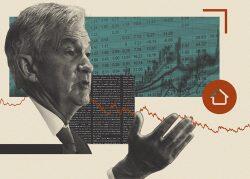Zumper, an online rental startup recognized last year as a top employer on multiple best-of lists, cut 15 percent of its approximate 300-person staff last Friday, The Real Deal has learned.
The majority of the cuts hit the San Francisco-based company’s sales and customer service departments, according to an axed employee who spoke on condition of anonymity. Members of the art department also were let go, per a LinkedIn post from a graphic designer who was among them.
Workers were sent notifications on Thursday for a next-day Zoom call outside of normal work hours, during which Zumper higher-ups communicated that the layoffs were budget-related, not performance-based, sources said.
“[W]hile I get the economics behind it this stings,” Casey S., a former customer service employee, said in a Tuesday LinkedIn post.
Zumper could not be reached for comment.
The cuts, the latest casualties of the ongoing tech rout, came amid a slew of layoffs at public and private real estate firms, including brokerages Compass, Side and Redfin and digital mortgage lenders Tomo and Better.com.
Read more



Adverse capital market conditions stemming from rising interest rates have forced many companies to rein in spending, and head count is typically where cost-cutting starts.
Zumper, co-founded in 2012 by CEO Anthemos Georgiades and Russell Middleton, has raised some $179 million in equity financing through at least six funding rounds, including a $60 million Series D led by e.ventures in early 2020, according to Crunchbase. Last year the company was reported to be nearing an IPO.
A private company that operates in residential rentals, one of the more resilient commercial real estate segments, Zumper has been shielded somewhat from recent stock market volatility. But interest rates and inflation, and trepidation about a likely recession, have sapped venture capital’s appetite for risk, too.
The Federal Reserve raised a key interest rate by 75 basis points on Wednesday in a bid to stem inflation — the sharpest increase since 1994. The consumer price index, meanwhile, reached its highest level in more than four decades in May, driven by rising food and energy costs. The combination of factors pushed the S&P 500 into bear market territory.
A recent Zumper report showed rents nationally hit another all-time high in May. Higher unemployment during a recession could trigger rental defaults, creating headwinds for landlords and the proptech platforms that service them.
